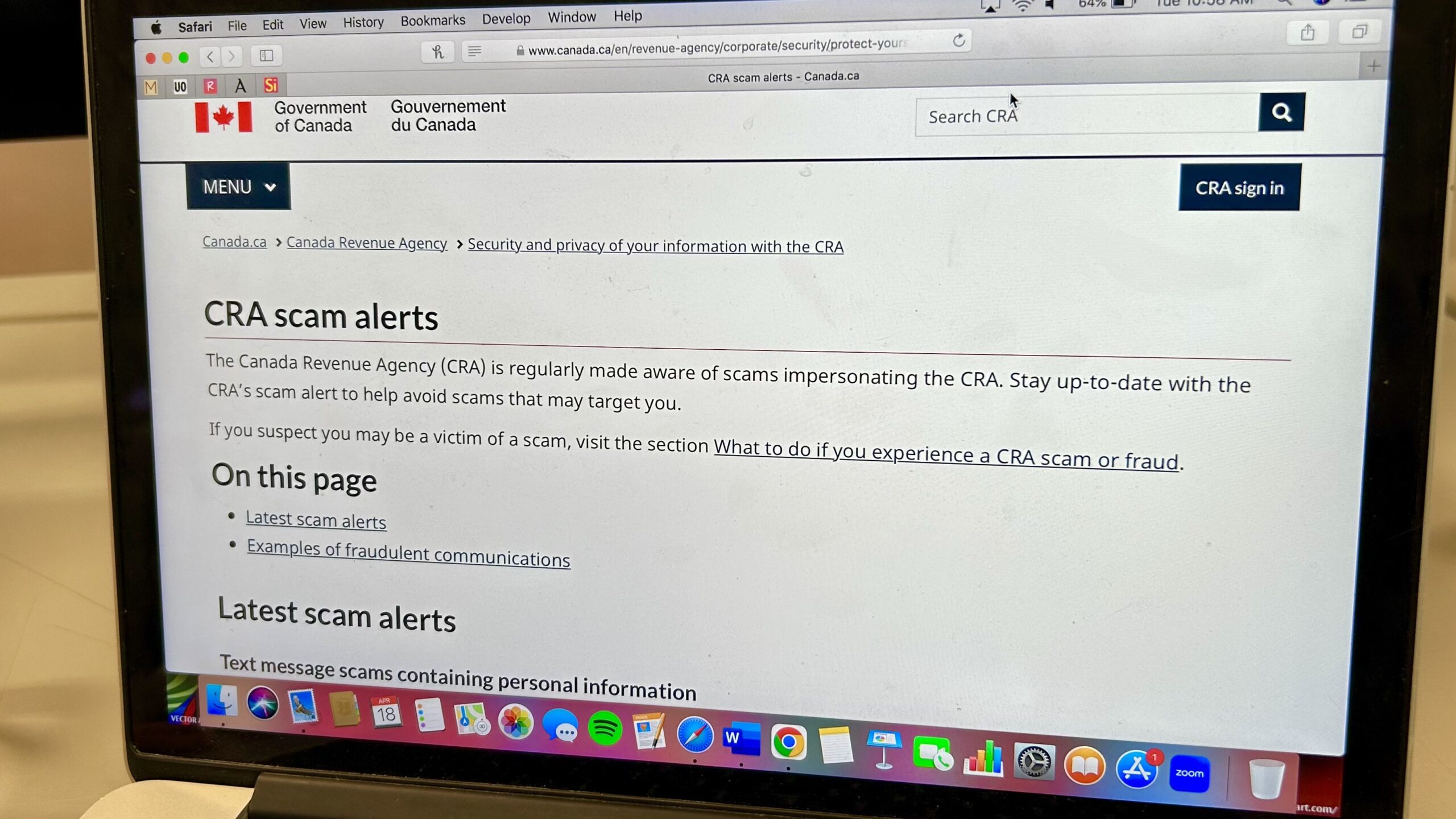The grocery rebate for low-income Canadians, has sparked a new scam to circulate, targeting Canadians via text.
Law enforcement became aware of these scams “within days of the March 28 release of the Federal Budget,” said Toronto Det. David Coffey, with the financial crimes unit.
“It is evident that fraudsters are monitoring the news for things such as government rebates and are sending out spam emails and texts following such announcements,” he said.
The federal government announced a grocery rebate for low-income Canadians in the recent 2023 budget, a $2.5 billion boost to the GST rebate. As many Canadians struggle with food prices, all low-income Canadians will be receiving a one-time payment to aid them in food costs.
Since the rebate has been announced, scams have begun to circulate via text and email claiming that recipients can receive their rebate payment by filling out a form in a link sent through the message.
“This is an example of a ‘phishing’ scam, in which the scammers gain access to your personal information to then be used in fraudulent activities,” Coffey said.
“It’s important to advise people that recipients who are eligible will receive the rebate along with their GST rebates,” he said. “Nothing needs to be done for eligible recipients to receive their money aside from filing their taxes.”
These fake CRA messages ask the target to click on a link to fill out a form with personal information. “You received $247 for One Time GROCERY REBATE,” one of the scam texts said.
The CRA became aware of this scam and urges Canadians to not fill out any forms or give our personal information. In a Tweet it said, “We will not text/email you a link to get a payment or to ask you to fill in a form.”
(1/2) Did you get an text or an email claiming to be from the CRA about the Grocery Rebate? It’s a scam!
❌We will not text/email you a link to get a payment or to ask you to fill in a form.
Learn how to spot scams at https://t.co/tqfrwoX71m #BeScamSmart pic.twitter.com/vDBFiRDjhJ
— Canada Revenue Agency (@CanRevAgency) April 17, 2023
The Canadian government website also updated their CRA scams page warning potential victims that their money will not be sent through a message.
“The CRA will not use text messages or instant messages to start a conversation with you about your taxes, benefits, or My Account,” the website said.
Coffey stressed the severity of what can happen to victims if they give these scammers their personal information.
“Once scammers have your identity information the amount of frauds they can commit are only limited by their imagination. Scammers can gain access to bank accounts, credit cards, cellular phone accounts, purchase vehicles, mortgages etcetera,” Coffey said.
Dr. Sylvain Charlebois, from the Argi-food analytics lab at Dalhousie University, also went to twitter to warn Canadians to not fall for the scams.
BEWARE: CRA says #grocery #rebate scams circulating by text and email these days, urging recipients to claim payments, fill out forms. These messages are fake and should not be clicked, the CRA said.
— The Food Professor (@FoodProfessor) April 18, 2023
Dana Etingen, a hostess for a Toronto restaurant, was shocked at how real some of the scam messages that have been posted online looked.
“I use a scam blocker on my phone so thankfully I didn’t receive any messages,” Etingen said. “But from what I have seen, some of these messages seem really legit, so I am very glad I didn’t get one or else I feel like I could have fallen for it.”

